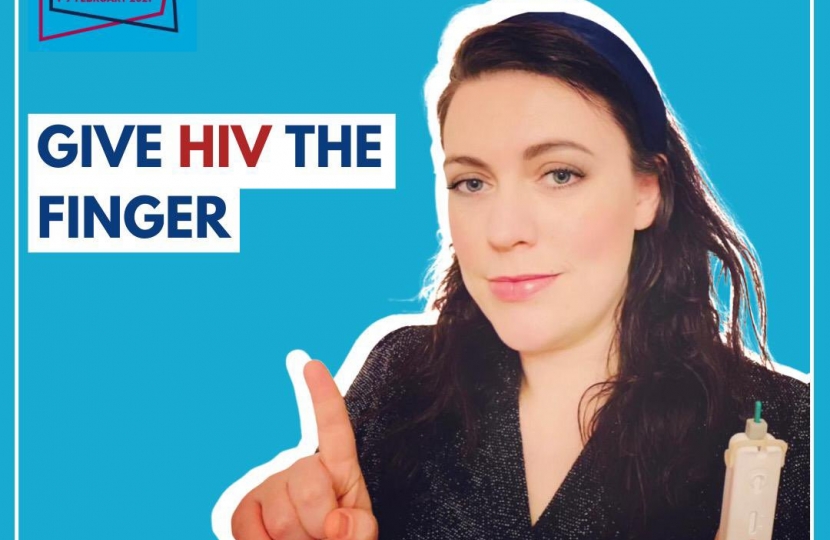
For HIV Testing Week I wrote the following article in partnership with the Terrence Higgins Trust.
For the last two weeks HIV has been discussed like no time in my adult life. If you haven’t watched Russell T. Davies’ ‘It’s A Sin’, I urge you to do so. The heartfelt but utterly harrowing drama follows the lives of a group of gay men and their friends as their community is devastated by the HIV/AIDS epidemic of the 1980s.
Like many people watching ‘It’s a Sin’, it shames me that in my lifetime, discrimination and hatred shaped the response of those in positions of authority, including medical practitioners, to those so in need of compassion and support. Scene after scene, we see ignorance and prejudice compound the anguish of the those living with, and dying of, the virus.
Thankfully such cruelty and misinformation is no longer as prevalent as it once was, but the HIV epidemic has not yet been consigned to the history books. The good news is that a HIV diagnosis is not a death sentence anymore. In fact, people living with HIV today can lead long and healthy lives, and thanks to effective treatment, cannot pass on the virus. Why is this not better known?
However, the impact of the stigma we’ve seen on screen continues to linger, and outdated notions surrounding the virus persevere. Despite women accounting for around a third of those living with HIV in the UK and 25% of new cases annually – women are still largely invisible when it comes to conversations around HIV. During the height of the epidemic in the 1980s, women were contracting HIV and dying of AIDS, yet their stories have gone mostly untold. It was such a missed opportunity in It’s A Sin to not recognise the many women whose lives were cut short by AIDS at that time.
In the last 40 years, huge advances in science means that HIV doesn’t need to hold women living with the virus back in life. So much so, that women living with HIV and on treatment can give birth without passing on the virus to their baby. This is a remarkable success story.
Despite these huge changes, the lack of visibility around conversations about HIV contributes to women being less likely to be offered a HIV test, and twice as likely as men to turn down a test. Each year over a quarter of a million women leave a sexual health clinic without testing for HIV. Every missed opportunity to test for HIV prevents us finding the 6,700 Britons living undiagnosed with the virus, and giving them access to life-saving treatment.
The perception that HIV only impacts gay and bisexual men is heavily stigmatising to those men, and it ignores that roughly half those living with HIV in the UK define as heterosexual. It also means far too many women are putting themselves at risk of HIV because they’re less likely to think of HIV as something they’re vulnerable to.
The impact of this is that new cases of HIV among women are not falling at the same rate as the wider population, and 42% of women are diagnosed at a late stage. This increases the risk of these women experiencing ill-health, as well as transmission to others.
There is now a realistic possibility that in the UK we can end the HIV epidemic within this decade. I’m proud that it is this Government that has committed to ending new cases of HIV by 2030 – that means zero, yes zero, new HIV diagnoses. It won’t be easy, but we have a chance to become the first country in the world to achieve this milestone. Thanks to the HIV Commission report we now have a roadmap to make this a reality, and my friend the Health Secretary Matt Hancock has pledged to turn this roadmap into a new HIV Action Plan. It’s crucial that the needs of all are fully integrated within this plan so no one is left behind as we defeat this virus.
We also have the tools to get there. Last year the Government rolled out the highly effective anti-HIV drug PrEP, available through the NHS; and all schools will start delivering Relationships & Sex Education lessons on it later in the year, meaning all young people will be taught the facts about how to protect themselves from HIV.
But there’s also something everyone can do right now. During this week’s National HIV Testing Week, anyone living in England can order a free test to do at home. I did the test over the weekend, it was quick, painless (despite a dislike of needles) I had the results in 15 minutes. It’s another example of how far we’ve come since the days when there was an agonising wait of weeks for a result.
As the credits rolled on ‘It’s A Sin’, the end of the HIV epidemic seemed so far away, but in the next decade we can truly end the story, we just have to choose to make it happen.
Order a free HIV test kit to do at home for National HIV Testing Week via the It Starts With Me website: startswithme.org.uk.
article first appeared in https://bigtent.org.uk/together-we-can-and-must-end-new-cases-of-hiv/


